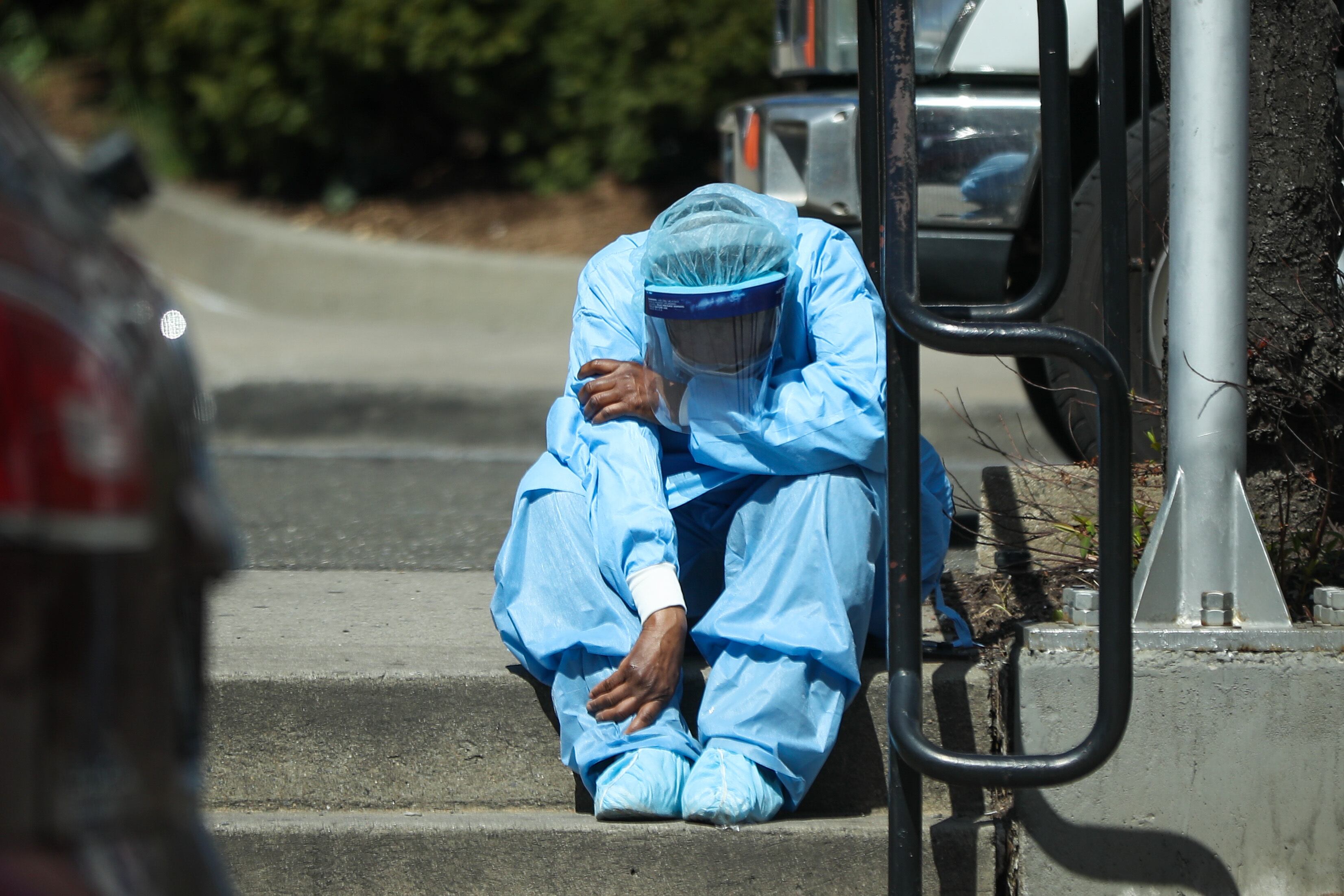As state and local officials scramble to avoid shortages of ventilators and personal protective equipment needed to fight coronavirus, New York City hospital workers are also bracing themselves for the emotional and psychological stress that comes with working on the frontlines of a pandemic.
In the coming weeks, ensuring that hospital workers don't get overwhelmed is a top concern for healthcare administrators looking to keep up a high level of service for months to come.
"One of the biggest fears that I have is that we're seeing an immense amount of emotional-psychological trauma and stress on our frontline providers, especially in our hardest-hit departments, and we're not even at the peak yet," Dr. Eric Wei, chief quality officer for NYC Health + Hospitals, told Cheddar.
Some evidence is already trickling in that COVID-19 has put a mental strain on those on the frontlines of combating the illness. A new study published in the Journal of the American Medical Association found that out of a sample of 1,257 health care workers, 50 percent experienced depression, 34 percent experienced insomnia, and 71.5 percent had psychological distress.
Wei said that NYC Health + Hospitals, which manages 11 hospitals in the city, has started taking steps to address the issue, including rotating shifts out of departments dealing with coronavirus and substituting in trained volunteers to take some of the load off of full-time workers.
The hospital system is also leaning on another program that it launched two years ago called Helping Healers Heal. The initiative provides one-on-one and group debriefings to health care workers after dealing with an especially traumatic situation, such as the death of a pediatric flu patient.
There are 18 teams spread across the system, Wei said, who is trained as an ER doctor himself and is putting in extra time to treat COVID-19 patients in addition to his administrative duties.
The system is also running a 24/7 behavioral health hotline staffed by psychiatrists and psychologists to talk with health care workers as needed.
"We're doing everything that we can around emotional-psychological support," he said. "We have wellness officers making rounds through our hardest-hit units, looking for signs of burnout and fatigue."
Wei noted that meeting these needs will be an ongoing effort as the stresses of the outbreak continue. One additional layer of assistance, he said, is coming from philanthropists, who are helping health care workers buy groceries, find safe transportation home, and in some cases stay at hotels to avoid contact with their families while they are susceptible to the virus.
"We know you're scared. I'm scared. All our health care workers are scared," he said. "But despite that, we suit up and show up every day at our hospital ready to treat you."









